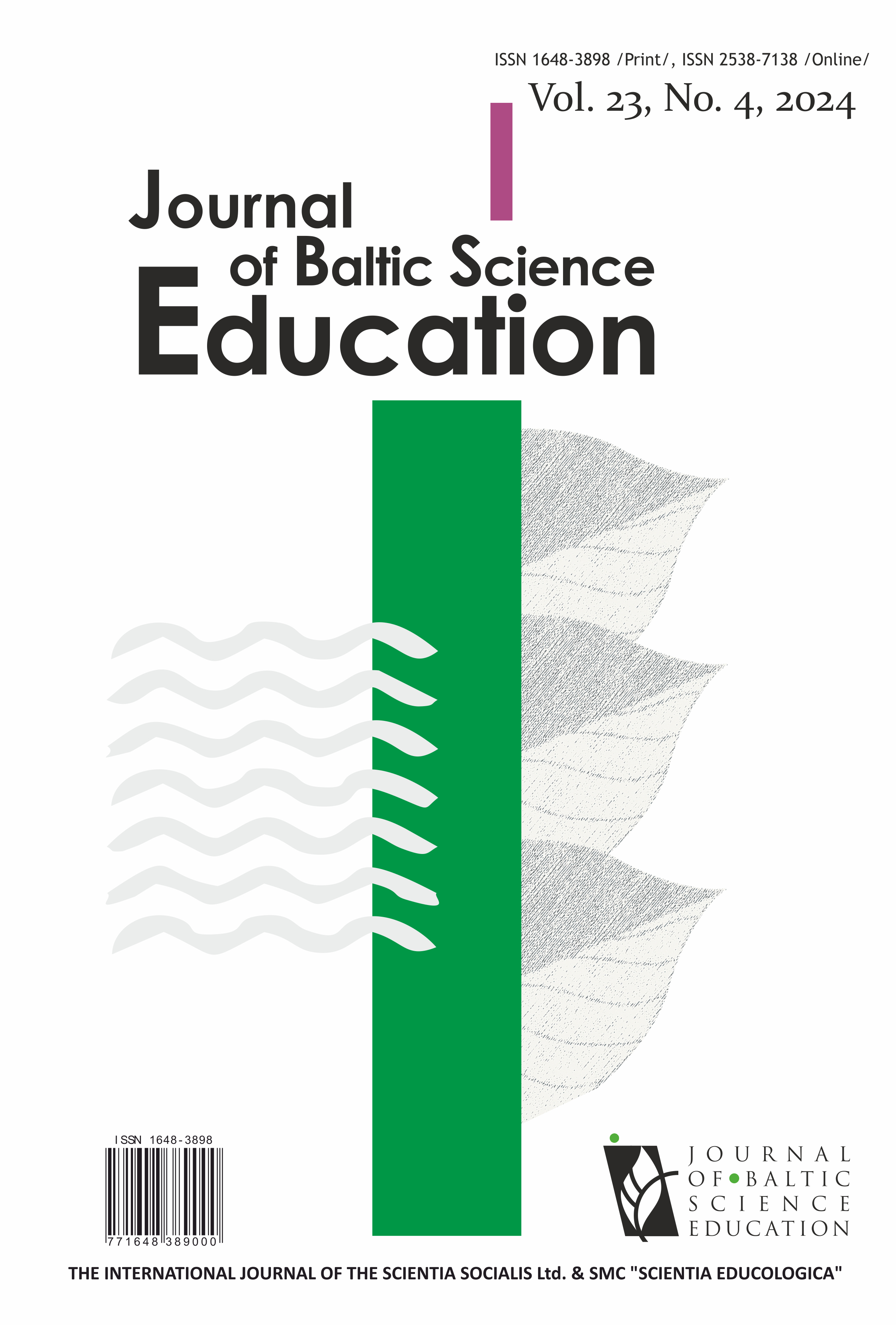A MANY-FACET RASCH MEASUREMENT APPROACH TO ANALYZE THE PREPARED SCIENCE LABORATORY ACTIVITIES BASED ON SCIENCE PROCESS SKILLS AND VIEWS OF PRE-SERVICE SCIENCE TEACHERS
A MANY-FACET RASCH MEASUREMENT APPROACH TO ANALYZE THE PREPARED SCIENCE LABORATORY ACTIVITIES BASED ON SCIENCE PROCESS SKILLS AND VIEWS OF PRE-SERVICE SCIENCE TEACHERS
Author(s): Emrah Hiğde, Ahmet Volkan Yüzüak, Zekiye Merve Öcal, Hilal AktamisSubject(s): Social Sciences, Education
Published by: Scientia Socialis, UAB
Keywords: laboratory experiments; Rasch model; science activities; science education;
Summary/Abstract: The Many-Facet Rasch model is frequently used to analyse and minimize disparities in rater (judge) severity in performance evaluations, in which raters assign scores to test-takers' performances. In this research, the aim of the present study was to analyse science teacher candidates’ laboratory activities by using the Many-facet Rasch model. Rasch model’s surfaces are, respectively: 9 juries, 8 science activities and 24 criteria. The FACETS program was used to do data analysis. Findings show that laboratory activities, which were coded as E8, were found to be the most successful and E2coded activity was found to be the least successful based on the criteria. Jury numbered 7 or coded as G7, is the most lenient, and scorer numbered 5, or coded as G5, is the severest when the juries are listed from the most lenient. The study's objective is to use the Many-Facet Rasch measurement model to analyse laboratory experiments linked to science-related activities. Analysis of the performance of science activities, analysis of criteria hardness, analysis of the severity and leniency of juries, and study of jury bias were carried out concurrently with this goal. At the end of the study, it can be easily inferred that the Multi-Facet Rasch measurement model could be used effectively to evaluate peer groups in science education and objective results could be obtained.
Journal: Journal of Baltic Science Education
- Issue Year: 23/2024
- Issue No: 4
- Page Range: 641-657
- Page Count: 17
- Language: English

